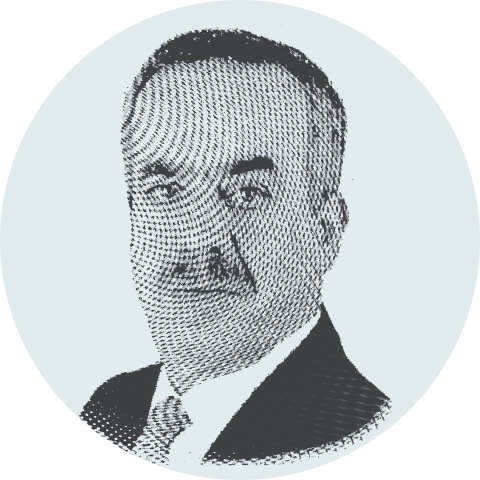An Arab politician once told me he feels “provoked” whenever he reads about artificial intelligence and the incredible changes it will introduce in the world. The feeling of being provoked does not stem from the shock that will be created due to the unavoidable changes that will affect the economy, science and way of life and work. Rather, the feeling of being provoked is due to the terrible divide between the world that is involved in making this change and the world that is stuck in the wars of the past.
Imagine that you can read about the extent of the breakthroughs achieved by AI, which is paving the way for a series of scientific and technological revolutions, while also reading at the same time about the extent of the horrors endured by countries still being held by the past. The same newspaper that brings you the latest scientific revolutions has pages saved for heartbreaking tragedies, such as the horrors in el-Fasher where ethnic cleansing, genocide and rape are committed and while bodies are burned and people are shot as they attempt to flee this hell. You can read about countries that waste the lives of their youth on the spite and rivalries of factions, deepening their stay in outdated times.
The politician recalled the time he spent in South Korea where he was awed by how a country lacking natural resources, such as oil and gas, was able to reserve a seat for its people on the train charging towards the future. He explained that the revolution begins with realizing the importance of time in the lives of countries and peoples; realizing that wasting time is no less important than wasting blood and money; and that wasting time is a crime in itself.
The move towards the future starts with the decision to be part of economic, scientific and human advances and the key to that lies in education and its development. The advanced university is key to accessing the future. Education is then coupled with sound and ambitious policies and attracting people towards investing in development, work ethics, and trust in institutions. The education, work and technological revolution can greatly make up for a country’s shortage of natural wealth.
Looking across the border from South Korea can shed more light on the issue. North Korea still lives in a world of fear and is in constant alert for a confrontation. Even though Kim Il-sung’s heirs have invested in missiles and nuclear power, poverty in their country continues to grow, not diminish. Its rulers have sought technology that can be invested in war, as if a growing arsenal is better than taking the path of comprehensive advancement and improving the lives of the people.
You cannot turn towards the future without a state – a modern one that is obsessed with advancement, planning and execution. Such a state spends money on universities and research, not on means to intimidate the people and curb their potential. This state is not distracted by minor wars or vendettas passed down through history. This state does not waste its wealth on petty policies, government crises, factional wars and constant tensions with neighbors that have been passed down through history.
Can we in a world that is forging ahead towards the accomplishments of AI maintain a world that is producing refugees, unemployed people and children who are unable to go to school? The Arab politician noted that there are over 35 million refugees in the world – 9 million of them Arab – who are registered with the United Nations. Arab countries are home to nearly a third of internally displaced people in the world. Refugees and displacement are not just problems of the present, but they will leave their painful marks on the future, such as health and humanitarian issues, wasted potential and negative impacts on stability and economic development.
The figures are harsh. Some 30 million Arab children and teenagers in the Middle East and North Africa are out of school. That is a terrible number. How can societies develop when such a massive number of their youths do not go to school? How can illiteracy be erased and youths be prepared for the job market if they grow up outside of schools where they should be educated and guided towards building their societies?
Several studies confirm that the number of unemployed people in the Arab world tops 60 million. Given the instability in several Arab countries, this number is unlikely to go down any time soon.
AI is the new date with the future. Lost countries and governments and outdated universities cannot hop on the train of the future. A true cultural revolution is needed and radical change is needed in mindsets and methods. Wars must be resolved through justice and respect of international law. Isolation is the best recipe for death and sailing against the winds of the current times is suicide. There can be no choice but to join the path of advancement. Such a step does not threaten stability, but protects it.
The politician said that the Arabs have no choice but to secure their future by joining the train of advancement. This can only be achieved if the will and vision are available as demonstrated in how some Arab and Islamic countries have managed to embark on this path.
He noted Saudi Arabia’s advancement over the last decade and how it can inspire Arab and Islamic societies. He stressed that Saudi Arabia’s workshop of advancement has amplified the Kingdom’s regional and international weight and influence. This will clearly be demonstrated when US President Donald Trump receives Prince Mohammed bin Salman, Saudi Crown Prince and Prime Minister, at the White House. The meeting will concern their countries, as well as the future, stability and prosperity of the Middle East.
